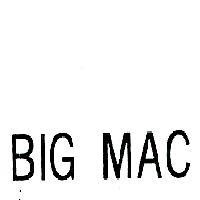On October 20, 2021, Taiwan’s IP Office (“TIPO”) determined that “MAC’S”, the trademark registered by Lion-Beer, Spirits & Wine (Nz) Limited (“Lion Beer”), should be cancelled due to likelihood of confusion with McDonald’s “BIG MAC” (See below).
The contested trademark, “MAC’S”, was filed on October 5, 2018, and granted on October 1, 2019 (Reg. No. 02014986, see blow), designated for use in services under class 43, including beverage shop, restaurants, coffee shop, cafeterias, catering service, hotels, accommodation services, etc.
McDonald filed opposition on January 2, 2020, contending Lion-Beer’s “MAC’S” would cause confusion with McDonald’s “BIG MAC”.
In its determination, TIPO sides with
McDonald, finding that:
1.
With regard to similarity, TIPO
opines both trademarks feature the word “MAC”, which would be the main portion
that creates the strongest impression among ordinary consumers. While there is
additional word “BIG” in McDonald’s cited trademarks, such word is adjective
and would not be the focus of consumers. Thus, TIPO considers “MAC’S” similar
with “BIG MAC”.
2.
As to the similarity of the designated
goods and services, TIPO finds McDonald’s “BIG MAC” is also applied for use in restaurant
service, and the food products designated by McDonald’s “Big Mac”, such as
fried chicken, fried nuggets, seasoning sauce, cookies, French fries, etc., are
also associated with or relevant to the accommodation or catering services
designated by Lion Beer’s “MAC’S”. Thus, TIPO rules that “MAC’S” is applied for
use in services that is associated with products and service designated by
McDonald’s “BIG MAC”.
3. TIPO further notes that McDonald’s “BIG MAC” is distinctive, and has accumulated considerable recognizability through years of marketing and promotion in the local market, including the menu, TV commercial, and associated merchandise such as hand bag, clothing, and watches. Although TIPO also notes that there is evidence showing Lion-Beer’s marketing and sale of beer products in retail channels like Carrefour, such evidence is not enough to prove that on the filing date of Lion-Beer’s “MAC’S”, local consumers have already been familiar with “MAC’s”. Thus, TIPO is of the view that consumers are more familiar with McDonald’s “BIG MAC”.
In view of the above, considering Lion-Beer’s “MAC’S” is similar with McDonald’s “BIG MAC”, is applied for use in similar services, and consumers are more familiar with “BIG MAC”, TIPO determines that there is likelihood of confusion caused by registration of “MAC’S”, and rules that such a trademark shall be cancelled accordingly.






























